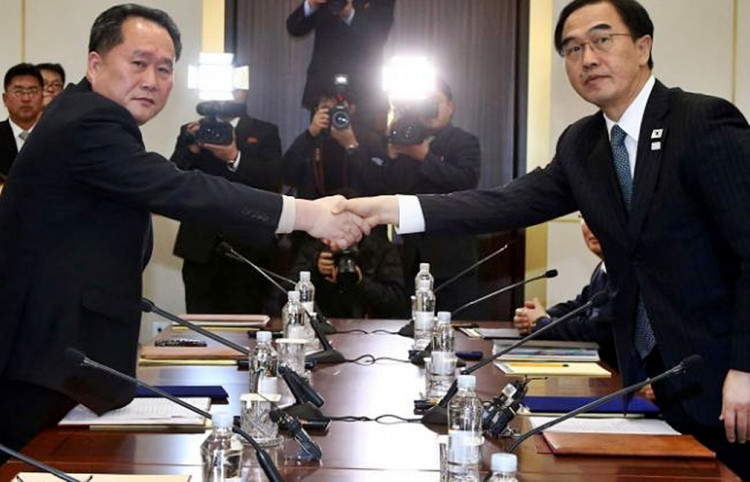North and South Korea will begin reconnecting rail and road links severed 68 years ago before the year ends without the participation of the United States.
This is another step along their bilateral road that might eventually lead to a formal treaty ending the Korean War. And all this without any major involvement by the United States and its president, Donald Trump.
Over the past few weeks, Washington has voiced its dismay that the "go it alone" approach by both Koreas is seriously undermining its bid to force North Korea into accepting a denuclearization on its terms. The inter-Korea talks have also prevented Trump from taking center stage in these negotiations.
South Korea informed the U.S. and the United Nations Command (UNC) about the road and rail project. Unification Minister Cho Myoung-gyon said South Korea was in "close consultation with relevant countries."
The assent of the UNC was essential because, in August, a planned inspection by the two Koreas for the rail project was scrapped after the UNC rejected the passage of a test train carrying fuel through the DMZ or the Demilitarized Zone. The UNC, which was formed in 1950 during the Korean War, oversees affairs at the DMZ.
Both Koreas reached the agreement after sincerely discussing action plans to develop inter-Korean relations to a new, higher stage, said a joint statement released by the Ministry of Unification of South Korea.
They agreed to hold ceremonies in late November or early December to inaugurate the projects that will reconnect the railways and roads that have been cut since the Korean War began in 1950. They will also carry out joint field studies on the transport plans later this month.
The rail and road reconnection projects agreed by president Moon Jae-in and dictator Kim Jong-un at their latest summit Pyongyang last month. In addition to restoring the land links, both countries also agreed to discuss a plan to co-host the 2032 Summer Games. They are scheduled to meet later this month.
The talks were led by Cho and Ri Son Gwon, chairman of the North's committee for peaceful reunification.
Cho said both Koreas are at a very critical moment for the denuclearization of the Korean peninsula and the advancement of inter-Korean relations. He noted there's a second North Korea-U.S. summit coming up.
The U.S. and its president remain the biggest stumbling blocks to more progress in the delicate inter-Korea talks. Trump is again eager to be in the world spotlight and praised as a peacemaker. The inter-Korea talks have no role for Trump to play, effectively sidelining him.
The U.S. also remains committed to a policy of "maximum pressure" aimed at coercing North Korea into abolishing its nuclear weapon and ballistic missile programs. Trump previously said South Korea can't lift sanctions on North Korea without U.S. approval.






